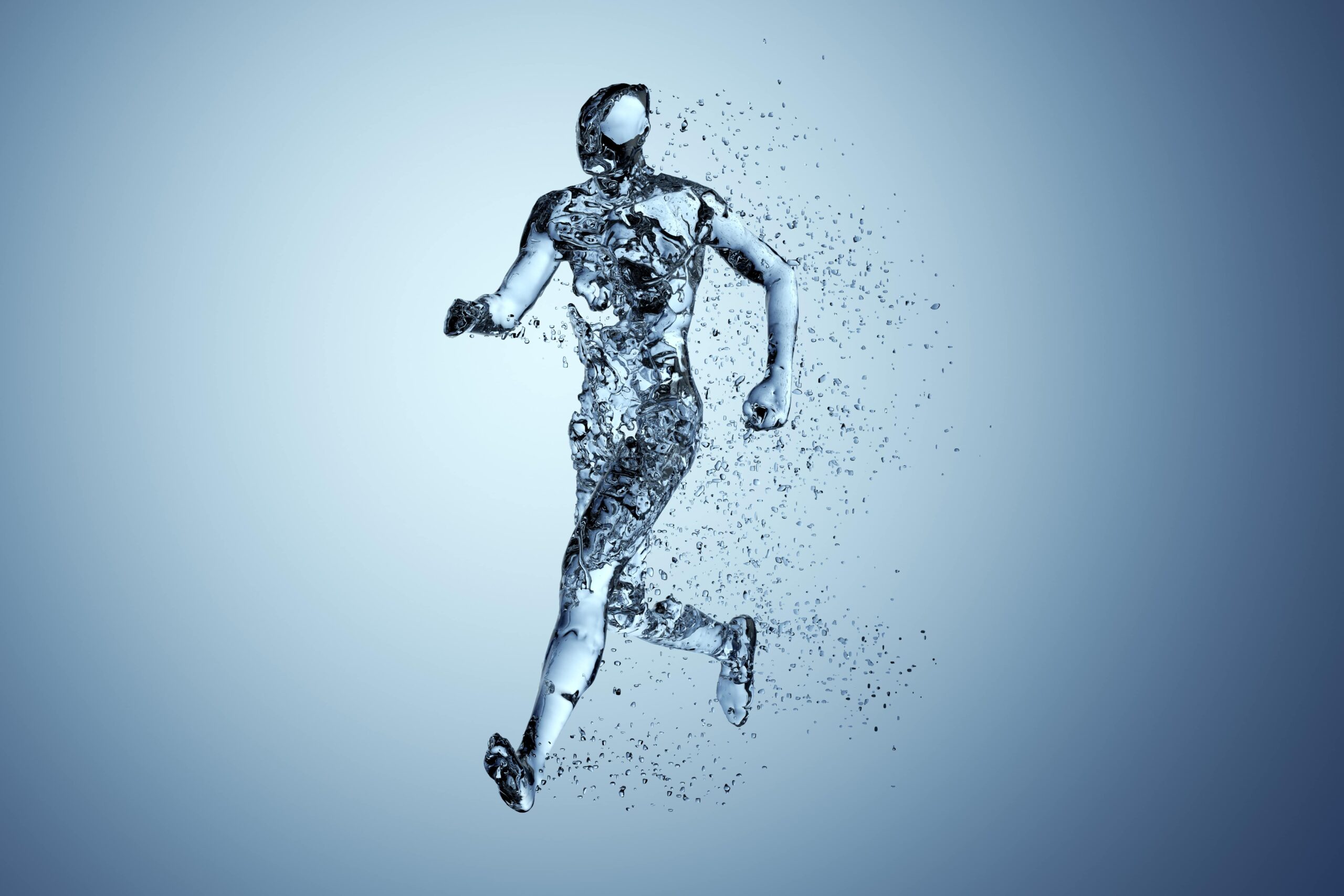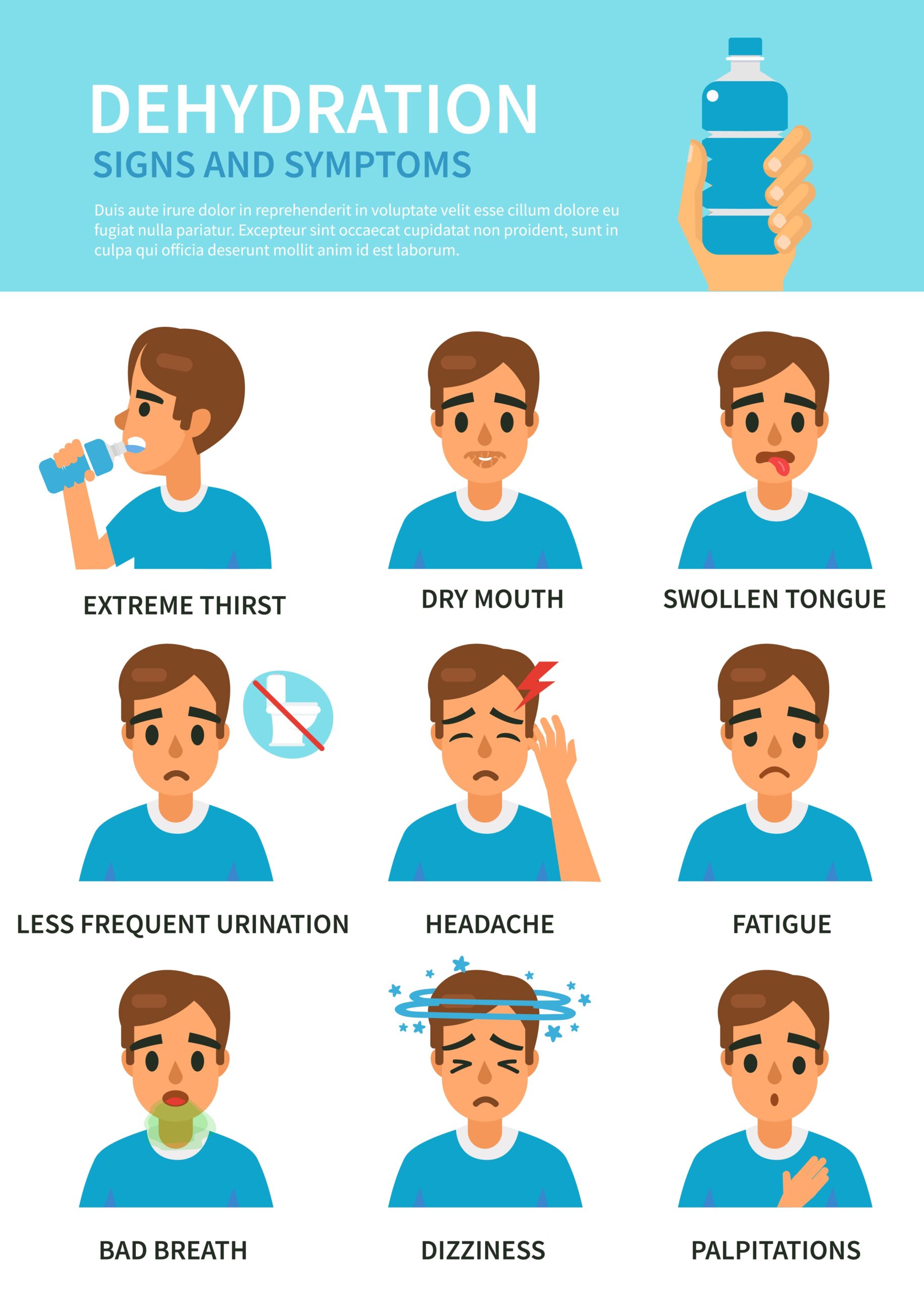Dehydration in those that train extensively in martial artist and competitive fighters is rampant. Not only do fighters experience dehydration injuries regularly, but many also dehydrate themselves purposefully to meet weight class.
This practice has resulted in lost fights, injury, and even death. In 2008, Daniel Cormier, captain of the US Olympic wrestling team, got cut from competition when his kidneys shut down hours after weighed in because of dehydration.
Let’s face it, when we train, we sweat and don’t have much opportunity to drink our fill. We need to take extra care to keep appropriately hydrated the rest of the time.
What Is Proper Hydration
Water is essential to life, and being adequately hydrated means your body has all of the fluid it needs to keep its organs running efficiently. It also means the blood fluid and pliable and the synovial fluids, cartilage, and connective tissue are properly lubricated.
On average, people need a lot more water than they actually drink. Most people would do well to consume approximately 1 gallon of water per day. Does that seem like a lot to you?

That's because the current minimum recommendation for inactive, sedentary people is half of that. And even then, they still don't drink enough. Do you?
“Dehydration can cause death not only through Hyponatremia (too high salt) but also through a process called Rhabdomyolosis as was tragically the case with Yang Jian Bing on December 10th. Rhabdomyolysis occurs in exercise from extreme overheating or when severely dehydrated muscle suffers from premature breakdown. The heavy muscle proteins pour into the circulating blood and clog kidney filtration systems leading to acute kidney failure.” As noted by Darragh O'Carroll MD.
Being Thirsty – Why You Should Always Pay Attention To Your Mouth
When people begin to be dehydrated, the first trigger in the body is thirst. Stage 1 dehydration is mild and does not affect everyday function. People feel thirsty, and they feel a little tight or achy if injuries or arthritis is involved.
However, there’s a small percentage of the population that does not feel thirsty, even if they are dehydrated. You have to pay extra attention to your water intake if you are part of this group.
As long as you do feel thirsty occasionally, you should always pay attention to your thirst reflex.
You should consume enough fluid, mainly in the form of water, to be able to replenish your body’s natural water reserves and satisfy the thirst reflex.
Take note of stage 2 dehydration. When the body moves into a deeper stage of dehydration, the thirst reflex turns off. People no longer feel thirsty. Some people believe this is a sign that they consumed enough water, but the opposite is true.
At this point of dehydration, the synovial fluids and mucous membranes are drying up. The blood is thickening and you may be affected by slow thinking.
This is where the majority of the injuries come from during competitions. Because the body cushions itself with fluid, dehydrating that fluid means strikes are more damaging to bone and muscle. And because the cartilage between the joints is not as flexible and dries out, delivering hits or stopping blocks have a much harsher effect on the body.
Dehydration Illnesses
Most lifestyle diseases are made worse by dehydration.
Let's look at blood pressure. When you are dehydrated, your body removes fluid from the blood, and it becomes more viscous. That means your heart has to work harder and increase the pressure against the arterial walls. This raises your blood pressure, damages the arteries, and puts you at a higher risk for both stroke and aneurysm.
Mentally, you tend to get slower. The neurons rely on the fluids within the brain to help pass nerve impulses efficiently. As the body dehydrates, the amount of fluid in the brain decreases. The more it falls the slower your mental synapses are. Being dehydrated literally makes you slow and dumb.

It also increases the time you need to recover from both injury and illness. To move the immune system around efficiently, the body relies on the lymphatic system to remove toxins and create a pathway through the body. As the lymph dries out, the system slows down. Toxins build up in the body, which impacts every metabolic function.
Bruises take longer to clear out. Repairs to muscle and tendons go much slower. And even your breathing is affected as you may not be able to efficiently exchange oxygen and carbon dioxide because the mucous membranes within the lungs have dried out.
Solutions - How to Fight Back Against Dehydration?
The best hydration is oral hydration. Drink, drink often, and stick to water. Dehydrating yourself before a fight and rehydrating later is NOT part of a good plan.
But, we know it’s hard and there are tricks to doing it well. Here are a couple of tricks:
Fighters Take Heed
A study published in the Journal of Strength & Conditioning Research in 2013 reported that 39% of the 40 MMA fighters it studied had “significant or serious dehydration” 22 hours after weigh-ins. The body can take up to three days to fully rehydrate and weigh-ins for major MMA and boxing events are held the day before.
Drink more water! You might not meet your ideal weight class, but you will be healthier. You have to decide what's more important to you - your health or a trophy.
For most fighters, they sacrifice their health for a chance at winning a trophy. Very few achieve the prize. So is it worth your health?
